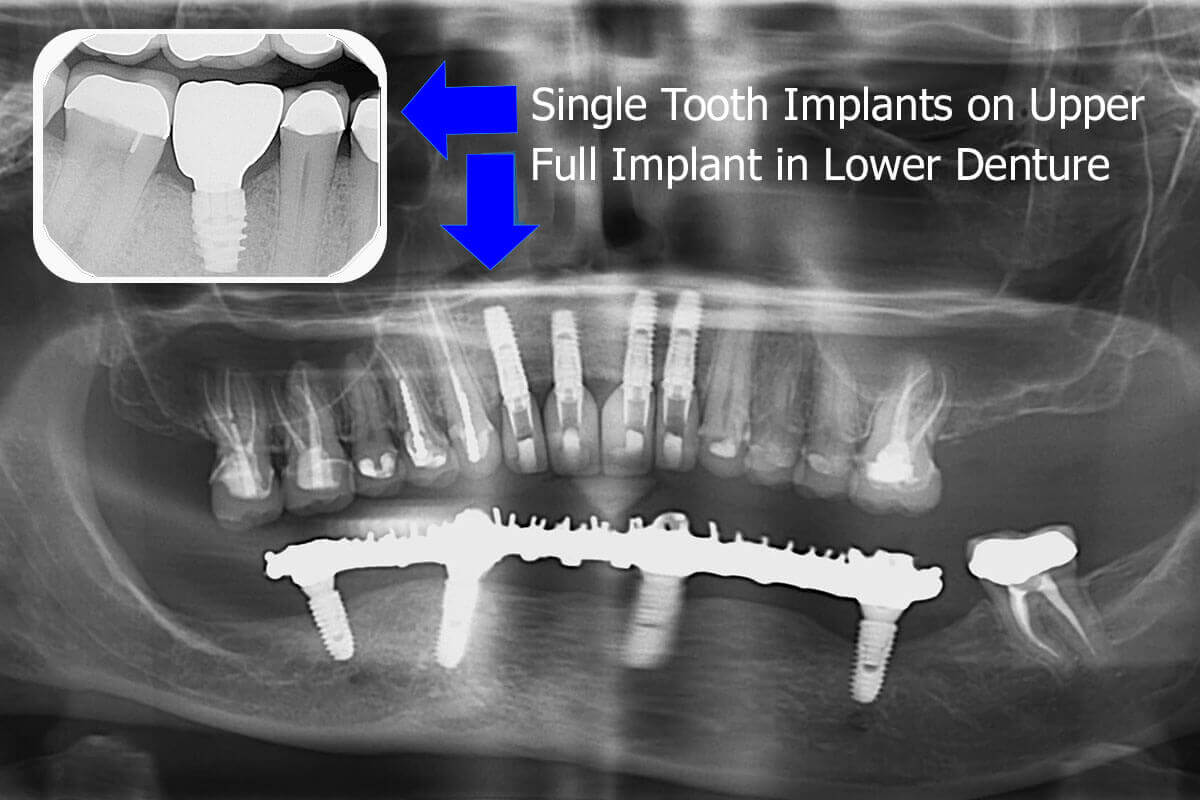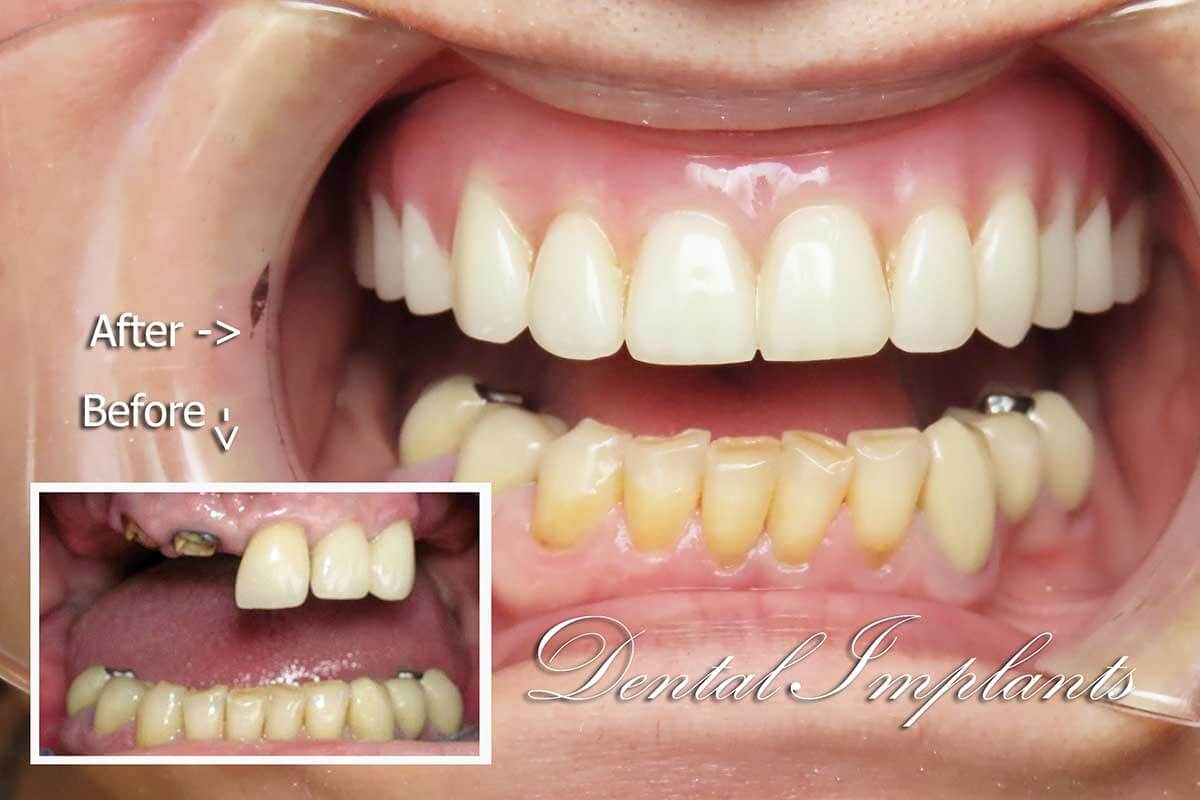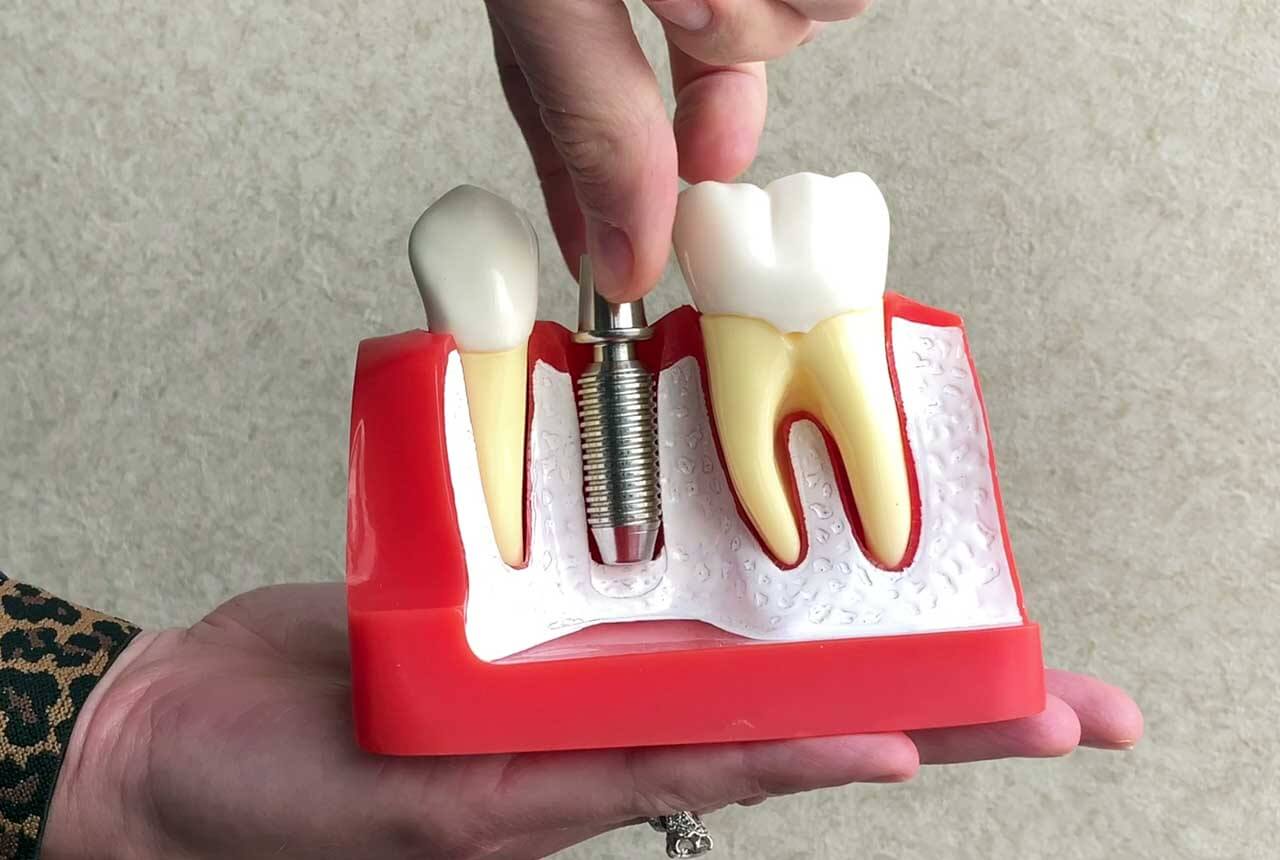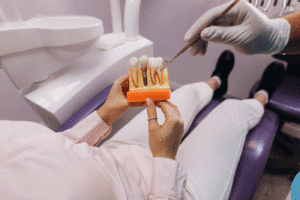When my Dental Implant is Loose, What Do I Do?
Modern dental implant treatment at Smile Design Dentistry in Plymouth, MN can take care of implant issues that come up.
When something comes loose that shouldn’t be, especially in your mouth, we understand that raises questions. This article seeks to answer many questions about loose dental implants
Is a Loose Dental Implant Unusual?
Having a loose dental implant is actually a relatively common issue that can come up if you have chosen to replace your natural tooth with a dental implant. There are a number of reasons for why your dental implant may be loose, and most of them have nothing to do with having a failed dental implant itself.
If your dental implant feels loose frequently, it may be a sign of other issues in your mouth and it definitely something you should chat with your dentist about.
If you notice something loose with your dental implant, call your dentist and schedule a visit so they can determine the underlying cause.
Understanding How a Dental Implant Works
In the most basic sense, a dental implant is a screw that is placed in your jaw bone with the goal of replacing missing teeth. Ultimately, your dental restoration that goes on top of your dental implant depends on how many teeth you are replacing.
For one tooth, a single crown is what you typically have attached to your implant.
For more than one tooth, a person may have a dental bridge installed or even a full denture attached to their dental implant.
What are the Parts of a Dental Implant?
No matter the type of tooth that you are replacing, be it one tooth or multiple, a dental implant is comprised of three basic parts.
First, the screw is placed into you jaw bone; this is the actual dental implant. Once this has healed after your surgery the whole point is to place a new tooth on that dental implant.
Linking a tooth to an implant requires a piece called the abutment. The abutment has a sore directly into the implant and on top of that abutment sits your final crown or denture.
That final crown or denture is the last of the three parts of an implant is restores the look and function of the teeth that were lost.
The beginning of this oral surgery practice dates back a awhile: According to the U.S. National Library of Medicine, “Implant dentistry the second oldest dental profession”. The May 28, 2020 Dental Implants article by Ranjan Gupta; Neha Gupta; and Kurt K. Weber also says they have a number of advantages over conventional fixed partial dentures with “a high success rate above 97% for 10 years.
Why is my Tooth Implant Loose?
Feeling movement in your dental implant is often times not from your dental implant itself.
For a single natural tooth replaced with a dental implant, often times it is the crown attached to the implant that is loose.
For larger bridges or dentures, often times there is a part that holds the denture or bridge to the implant rather than the implant itself that is loose. This can be a tiny screw that holds the denture down to the implant or loosening cement between a crown and the abutment (the piece of your restoration that connects your dental crown to your dental implant).
What signals a dental implant failure?
An early or late-stage dental implant failure can often be determine by one or more of the following complications:
- Chewing becomes harder.
- Gums are inflamed.
- Unusual gum recession.
- Noticeable swelling.
- When you can feel the loosening of an implant or a replaced tooth.
- Exceptional pain or discomfort levels.
While these are not exclusive to implant failure, with any of the above symptoms you should call your dentist to schedule an evaluation of your implant.
 How is my Dental Crown Attached to the Implant?
How is my Dental Crown Attached to the Implant?
There are two safe dental treatments that Smile Design Dentistry may use to attach your crown to the dental implant.
1. The first is called a cement-retained implant crown, which is exactly as it sounds, the crown is glued onto the abutment (remember that piece that links the implant to the final crown we discussed above).
The second is a screw-retained implant crown, in this situation there is a hole in your crown where you can access a tiny screw that goes into the abutment. The abutment and crown are one piece that connects to the implant in the bone.
Is a Cement-retained Dental Implant or a Screw-retained Implant Better?
This decision is typically made by your dentist and very little thought is given by you, the patient, to what was chosen. The reason for the choice considers many factors:
- Position of the dental implant.
- Size of the dental implant.
- Ease of placing the crown, type of dental implant, size of the crown.
- ease of removing the dental crown in the event of an issue.
All these factors play into which choice is made. As the patient, you want to ensure the dentist you chose understands the difference between them. Investing in dental implants to replace missing teeth is an important investment in your oral health.
When does a dental implant fail?
A true failure of a dental implant is generally rare. Typically most dental implant failures happen shortly have the dental implant was placed. This is considered a failure related to the surgery. For one reason or another, the implant fails to link to the bone. Without a tight link between your implant and the bone, you cannot put a final tooth or denture on that implant.
That does not mean you are unable to have an implant. More likely, you will have to remove the existing implant and start the process over. Following your post-surgery instructions from your dentist is extremely important in avoiding a surgical dental implant failure.
Can Dental Implants Fail after Having them for a Long Time?
The simple answer is yes, but again dental implants have a very high long term success. Most long term dental implant failures result from one of two basic sources: hygiene and bites. Be sure to take good care of your teeth and your dental implants thought tooth cleaning techniques provided to you from you dentist and hygienist.
Just because you cannot get a cavity on an implant doesn’t mean you cannot get gum disease around an implant, and periodontal gum disease can be a death sentence for a dental implant.
The bite, or way you chew on your dental implant or denture is largely controlled by your cosmetic dentist. With careful planning and skilled delivery of implant based dental care, you can have a tooth or teeth supported by dental implants that can last for many, many years!
According to the Semantic Scholar, “The long-term failure rate of dental implants is generally 5-10%”. Giorgio Tabanella says in the March 11, 2009 Clinical and microbiological determinants of ailing dental implants article, “factors associated with late implant failures are less well understood but are probably related to both the peri-implant microbial environment and host factors”.
If my Dental Implant is Loose what can be Done?
 How to fix a loose dental implant depends on what is happening. If the tiny screw that connects the implant crown/abutment to the implant itself is loose, most times you just need to replace and tighten that screw.
How to fix a loose dental implant depends on what is happening. If the tiny screw that connects the implant crown/abutment to the implant itself is loose, most times you just need to replace and tighten that screw.
Conversely, if the implant crown came off, a simple re-cement of that crown is all that is needed. If however the true implant in bone is moving and loose, your dental implant has failed. There is no remedy for that and it will have to be removed.
It is important to see your dentist to determine the cause of a loose implant, delaying can result in a more difficult solution than the ones described above.
How can I Care for my Dental Implant to Keep it Healthy?
Good oral hygiene is key to having a healthy dental implant tooth or dental implant denture. This means daily tooth brushing to remove plaque and using dental floss or other techniques to get plaque, food and bacteria off the dental implant.
I strongly recommend dental implant patients purchase a water flosser such as the Waterpik and learn how to properly use it. Some of the unique characteristics of dental implants make these dental hygiene devices very effective in keeping it clean and healthy for decades.
It is also extremely important that you stay regular and consistent with your dental cleaning appointments. Your dentist or dental hygienist can clean areas around your implant that you cannot and they can recognize problems at the earliest possible time. Many of those early catches can save you time and money by warding off larger issues.
Dental implants costs are reasonable. They are a fantastic treatment choice for a wide range of people.
Whether you are missing one tooth or multiple teeth, dental implants are a great option that can very nearly replace the natural teeth that were lost. They do need to be maintained and issues can come up even after you have be chewing and living with your dental implants for a long time.
Routine dental care is important for everyone but especially patients with a dental implant.
SUMMARY
We trust these answers relieve your dental anxiety if your implant has come loose. If you are interested in seeing if you are a candidate for or have questions about your dental implant contact Smile Design Dentistry today to see how our caring team can help!




